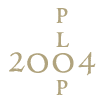The 11th Conference on Pattern Languages of Programs (PLoP2004)
September 8 - 12, 2004, Allterton Park, Monticello, Illinois![]()
|
Focus Group on Building Systems of Patterns Dr. Mohamed E. Fayad Huáscar A. Sánchez (Point of Contact) Haitham S. Hamza As software has increased in size and become more complex and costly, the need for techniques to ease and speed up the development of software products has likewise increased. In the last decade, the use of software patterns has emerged as a promising technique for reducing the cost and condensing the time of developing software system, while simultaneously maintaining the quality of these systems. However, the potential of using patterns in developing systems is not fully realized. While several successful stories have been reported for utilizing some existing software patterns (analysis, design, etc) in different projects, it is not clear yet how several patterns can be composite to build a system of patterns. The focus of this workshop is to answer two main questions: First, how can we composite pattern of the same kind together to build a larger component? Second, how can different kinds of patterns be woven together to build a system of patterns? The answer to these questions and others is not straightforward but it worth the time and the effort. The second question is perhaps less obvious, and the reason for that is because current patterns books are usually dictated to one specific phase in the development cycle of software systems. Design patterns, which usually touch on implementation issues as well, never talk about analysis patterns. Conversely, books in analysis patterns do not show how to link these patterns to the design patterns. Moreover, books that present the concept of pattern-oriented software development, such as: “Pattern-Oriented Software Architecture - A System of Patterns” by Buschmann, et, al. and the book titled “Pattern-Oriented Software Architecture: Patterns for Concurrent and Networked Objects” by Schmidt, et, al. did not link their work to the use of analysis patterns in the analysis phase, and both books are focused only on “designing” system of patterns. Such gaps in understanding the use of patterns in practice are significant challenge facing software developers, and makes the use of the patterns in real-life development seems to be more complex than it should. Consequently, the attraction of using patterns as a technique for eases the development of systems will be dangerously scarified. This workshop will discuss the problem of pattern composition and investigates how different kinds of patterns can be woven to develop a system of patterns. The workshop also will discuses and evaluate current approaches for pattern composition. The focus group will examine how to develop and utilize analysis and design pattern with respect to three central themes: "How to composite patterns of the same kinds to build larger patterns?” "What are the possible techniques for composing patterns of different kinds to build system of patterns? What are the real challenges, other than composition problem, that can hinder the development of system of patterns? These and other questions concerning pattern traceability (as raised by participants) are at the core of this focus group. The workshop will debate several issues related to inject traceability with developing analysis and design patterns. We want patterns’ researchers, framework developers, and application developers to answer the following questions: Why are the main challenges in developing systems of patterns? What are the possible solutions of composting patterns of the same kinds and of different kinds? What are the relation between analysis patterns and design patterns? And how can they be linked together in developing systems There is no limitation on the number of the participants to this focus group. Participants are encouraged to submit a position paper (no longer than five pages in PDF format). Papers will be reviewed and will be made available on the focus group web page in advance of the conference. Papers should be submitted to hsanchez@email.sjsu.edu WORKSHOP FORMAT Participants are expected to read all position papers before the focus group takes place. The focus group will consist of an invited talk and single-track presentation sessions. The plan is to have no more than half the time devoted to presentations and the other half to discussion and brainstorming new ideas and solutions. The results of this discussion will be documented into a final report. The theme of the sessions will be determined based on the position statements. While not all accepted position statements are expected to be presented, they will be available on the web before the conference. A summary report on the workshop will also be posted on the web. Back to Focus Groups
|
PLoP is a trademark of The Hillside Group, Inc.
